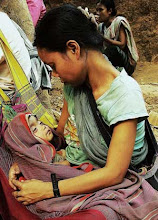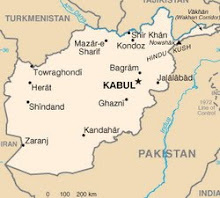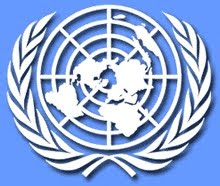 COLOMBO, Sri Lanka(Compass Direct News)The Sri Lankan Parliament may soon enact laws designed to restrict religious conversions.A standing committee assigned to consider a draft “Bill for the Prohibition of Forcible Conversions” presented its report to Parliament on Jan. 6, suggesting minor amendments that clear the way for a final vote in February. The provisions of the bill criminalize any act to convert or attempt to convert a person from one religion to another religion by the use of force, fraud or allurement. Those found guilty of breaking the law could be imprisoned for up to seven years and/or fined up to 500,000 rupees (US$4,425).The Ven. Omalpe Sobitha Thero, a member of the Buddhist Jathika Hela Urumaya party (JHU or National Heritage Party), first proposed the draft in 2004. While the JHU claims the bill is designed to stop unethical conversions, civil rights groups and Christian churches say it will infringe on the constitutional rights of freedom of religion and legitimize harassment of religious minorities.Buddhists form a 70 percent majority in Sri Lanka, with Roman Catholics constituting 7 percent and Protestant Christians only 1 percent of the population.After the first reading of the bill in Parliament in August 2004, 22 petitions were filed in the Supreme Court challenging the validity of the draft legislation.The Supreme Court determined the draft bill to be valid except for clauses 3 and 4(b), which it deemed unconstitutional. These clauses required any person who converted or participated in a religious conversion ceremony to report to a government official and prescribed punishment for failure to report such conversions.The draft was then referred to a parliamentary standing committee for further review. In its report, presented to the House on Jan. 6, the committee made a few amendments to the original draft in keeping with Supreme Court recommendations. The most notable amendment was the deletion of the need to report conversions and the punishment prescribed for not reporting them.These amendments paved the way for the draft bill to be passed by a simple majority vote when it is presented for a final reading in Parliament this February. Chief Opposition Whip Joseph Michael Perera, however, has requested a two-day debate on the draft bill on grounds that it would affect all religions.
COLOMBO, Sri Lanka(Compass Direct News)The Sri Lankan Parliament may soon enact laws designed to restrict religious conversions.A standing committee assigned to consider a draft “Bill for the Prohibition of Forcible Conversions” presented its report to Parliament on Jan. 6, suggesting minor amendments that clear the way for a final vote in February. The provisions of the bill criminalize any act to convert or attempt to convert a person from one religion to another religion by the use of force, fraud or allurement. Those found guilty of breaking the law could be imprisoned for up to seven years and/or fined up to 500,000 rupees (US$4,425).The Ven. Omalpe Sobitha Thero, a member of the Buddhist Jathika Hela Urumaya party (JHU or National Heritage Party), first proposed the draft in 2004. While the JHU claims the bill is designed to stop unethical conversions, civil rights groups and Christian churches say it will infringe on the constitutional rights of freedom of religion and legitimize harassment of religious minorities.Buddhists form a 70 percent majority in Sri Lanka, with Roman Catholics constituting 7 percent and Protestant Christians only 1 percent of the population.After the first reading of the bill in Parliament in August 2004, 22 petitions were filed in the Supreme Court challenging the validity of the draft legislation.The Supreme Court determined the draft bill to be valid except for clauses 3 and 4(b), which it deemed unconstitutional. These clauses required any person who converted or participated in a religious conversion ceremony to report to a government official and prescribed punishment for failure to report such conversions.The draft was then referred to a parliamentary standing committee for further review. In its report, presented to the House on Jan. 6, the committee made a few amendments to the original draft in keeping with Supreme Court recommendations. The most notable amendment was the deletion of the need to report conversions and the punishment prescribed for not reporting them.These amendments paved the way for the draft bill to be passed by a simple majority vote when it is presented for a final reading in Parliament this February. Chief Opposition Whip Joseph Michael Perera, however, has requested a two-day debate on the draft bill on grounds that it would affect all religions.Fulfilling Campaign Promises
The JHU, founded and led by Buddhist clergymen, made anti-conversion legislation a cornerstone of its debut election campaign in 2004, when it won nine seats in Parliament. With the possibility of an early general election this year, the bill has become a matter of political survival for the JHU.At a press briefing on Jan. 7, Ven. Ellawela Medhananda Thero, a Buddhist monk and Member of Parliament representing the JHU, called on all political parties to vote in favor of the bill.“People expected us to fulfill two goals,” he said. “One was to end unethical conversions and the other was to liberate the country from the Liberation Tigers of Tamil Eelam. That is why we entered politics.” Ven. Medhananda Thero added that the purpose of the bill was to protect all major religions in the country from fundamentalists and unethical conversions. Sri Lanka’s Christian community and civil rights groups have strongly objected to the draft legislation. Far from stemming alleged forced conversions, they claim the bill will become a weapon of harassment through misapplication, limiting the fundamental rights of thought, conscience and religion. These rights include the right to adopt a religion and the right to practice, observe and teach religion. The National Christian Evangelical Alliance of Sri Lanka (NCEASL) said in a recent press statement that, “It is our gravest concern that this bill will grant legal sanction for the harassment of religious communities or individuals, and offer convenient tools of harassment for settling personal disputes and grudges, totally unrelated to acts of alleged ‘forced’ conversion.”
Banning Compassion
According to Section 2 of the draft bill, the offer of any temptation such as a gift, cash or any other gratification to convert or attempt to convert a person from one religion to another is punishable with up to seven years of prison and a maximum fine of 500,000 rupees (US$4,425) – equal to approximately three years’ wages for the average Sri Lankan citizen.Sri Lankan Christians have repeatedly expressed concern that key sections of the draft bill are open to wide and subjective interpretation that could criminalize not only legitimate religious activity but also legitimate social action by faith-based organizations or individuals.“A lady who heads a charitable trust caring for orphans asked if she could be charged under this law, since she is a Christian and some of the children she cares for are not,” a lawyer told Compass. “Many people will now think twice before helping the poor or needy, for fear of being accused of committing a criminal act.”Ironically, on June 4, 2008, in his address to the new Sri Lankan ambassador to the Holy See, Pope Benedict XVI had acknowledged the Sri Lankan government’s appreciation of the Catholic Church’s charity work in the country. “Such action is a concrete example of the Church’s willing and prompt response to the mission she has received to serve those most in need,” he said. “I commend any future measures which will help guarantee that Catholic hospitals, schools and charitable agencies can continue to care for the sick, the young and the vulnerable regardless of ethnic or religious background.” He went on to assure the government that “the Church will continue in her efforts to reach out with compassion to all.”On Jan. 8, at his traditional New Year meeting with all ambassadors to the Holy See, the pope appeared to be addressing concerns over anti-conversion legislation.“The Church does not demand privileges, but the full application of the principle of religious freedom,” he said. He also called on Asian governments to ensure that “legislation concerning religious communities guarantees the full exercise of this fundamental right, with respect for international norms.”Since the first draft anti-conversion bill was presented to Parliament in 2004, the National Christian Council of Sri Lanka, NCEASL and Catholic Bishops Conference of Sri Lanka have repeatedly called for an alternative solution based on inter-faith dialogue with fair representation of all religious communities. “Enactment of laws to regulate something as intrinsically personal as spiritual beliefs will not contribute towards resolving disagreements and promoting religious harmony,” said Godfrey Yogarajah, executive director of the World Evangelical Alliance Religious Liberty Commission. “On the contrary, it will create mistrust and animosity.”
http://www.opendoorsusa.org/content/view/908/139/
As in the days of Noah...


























.bmp)
No comments:
Post a Comment